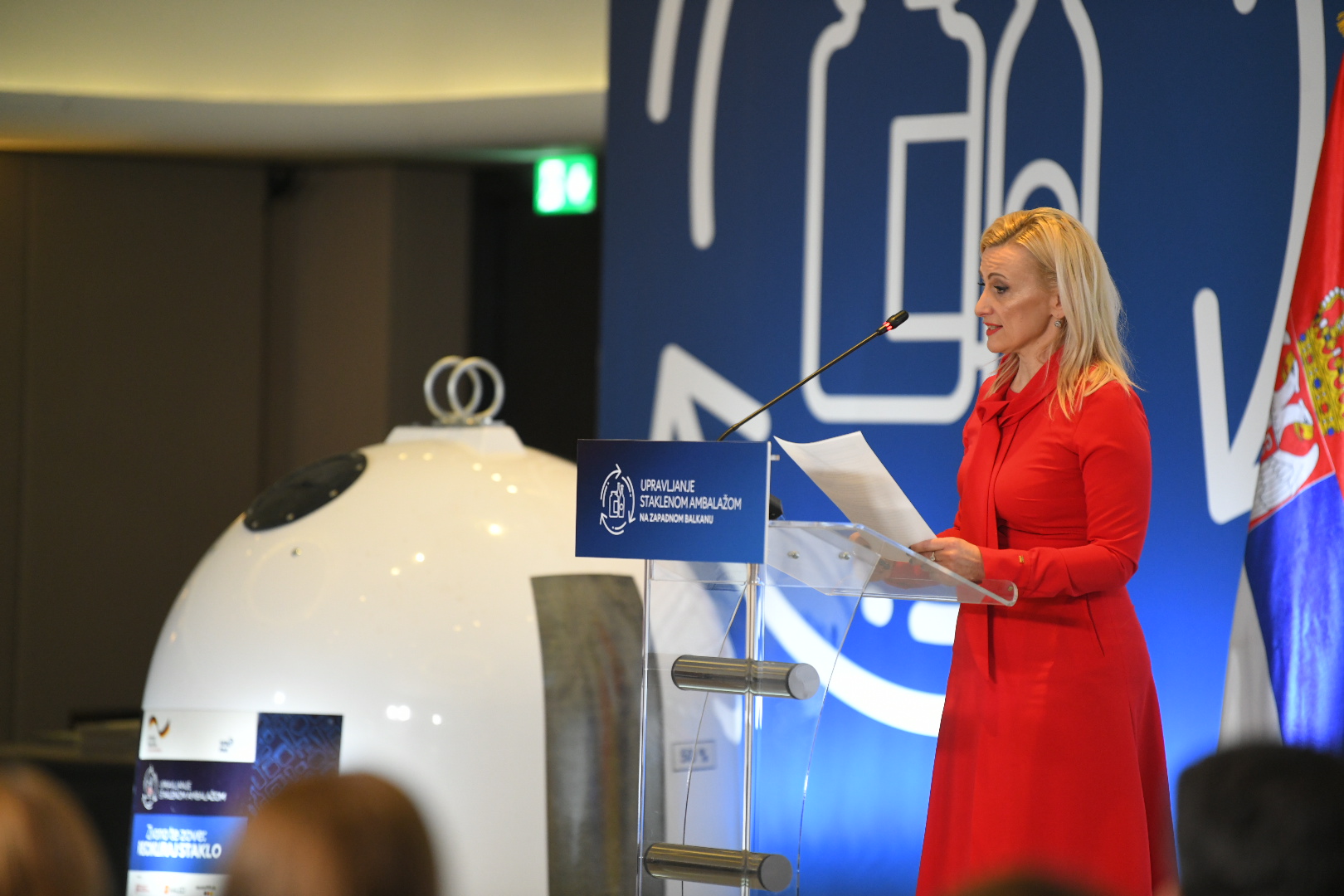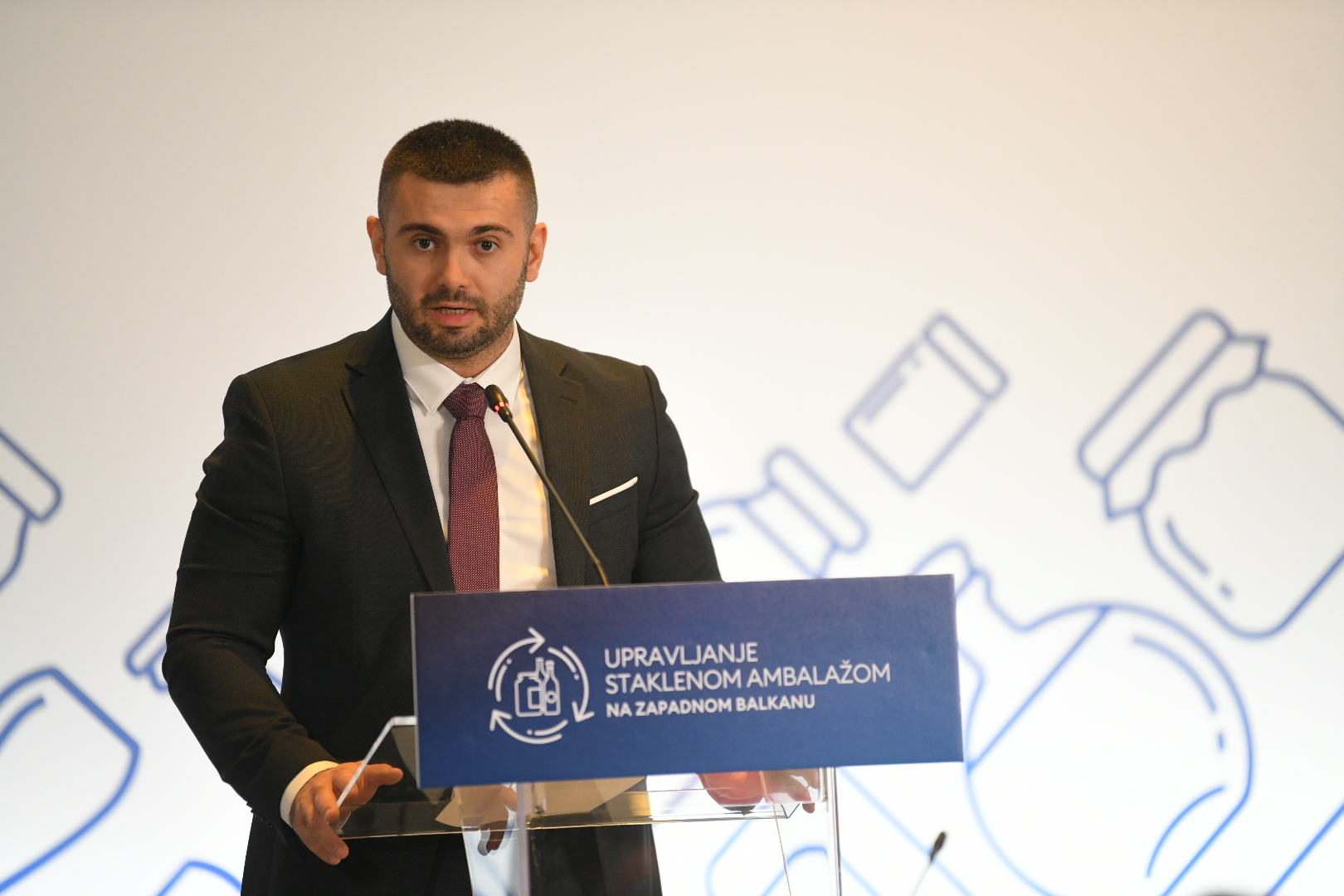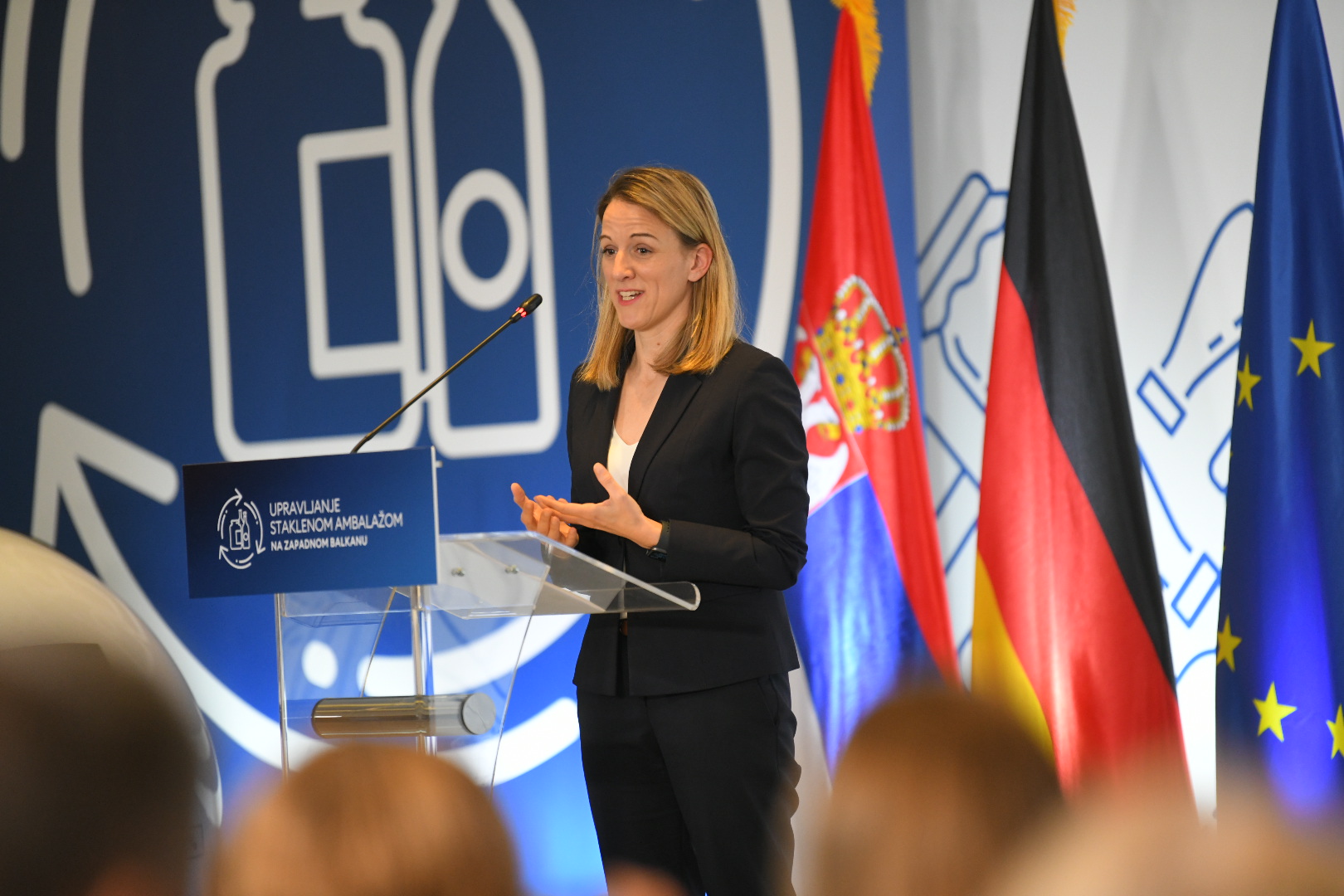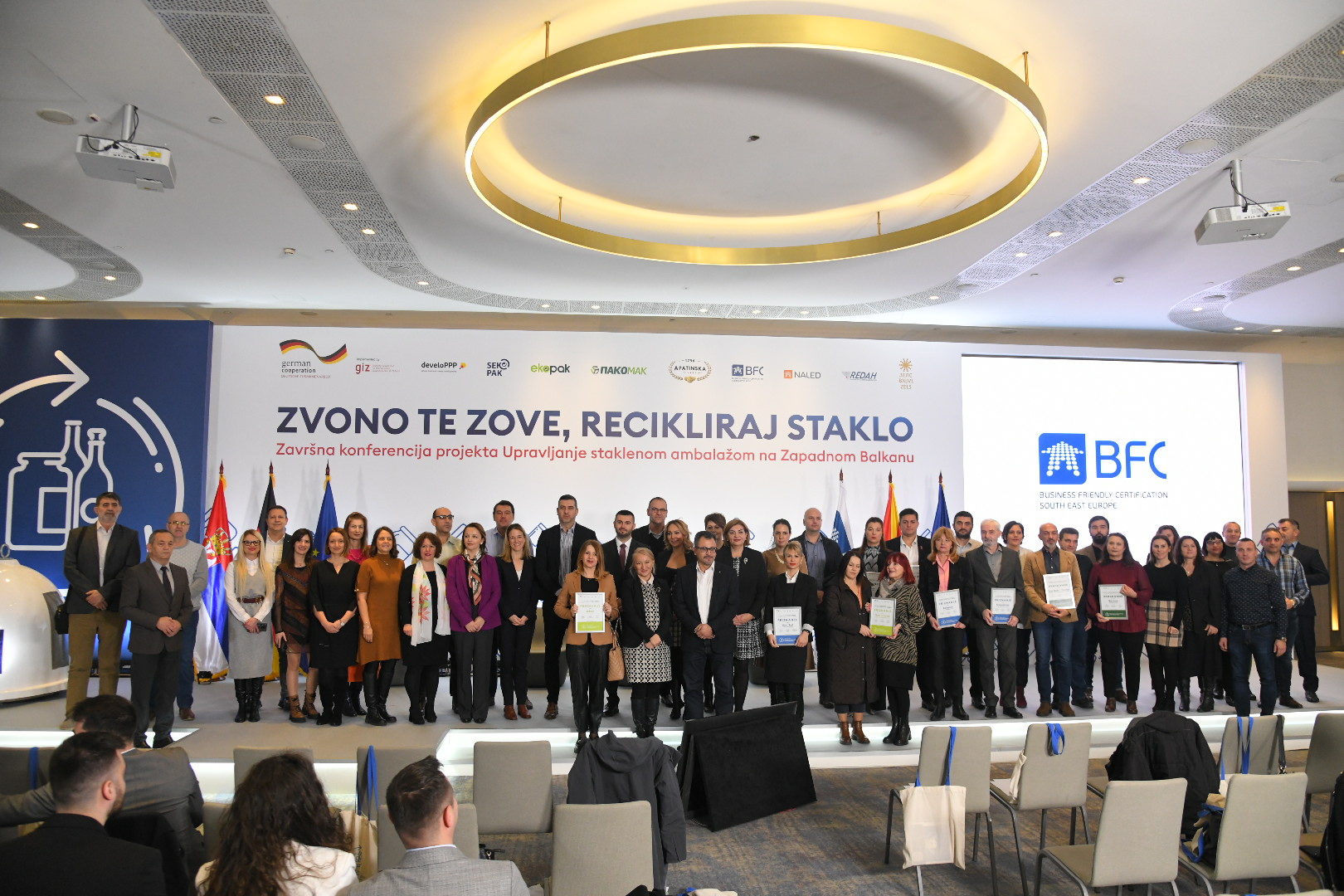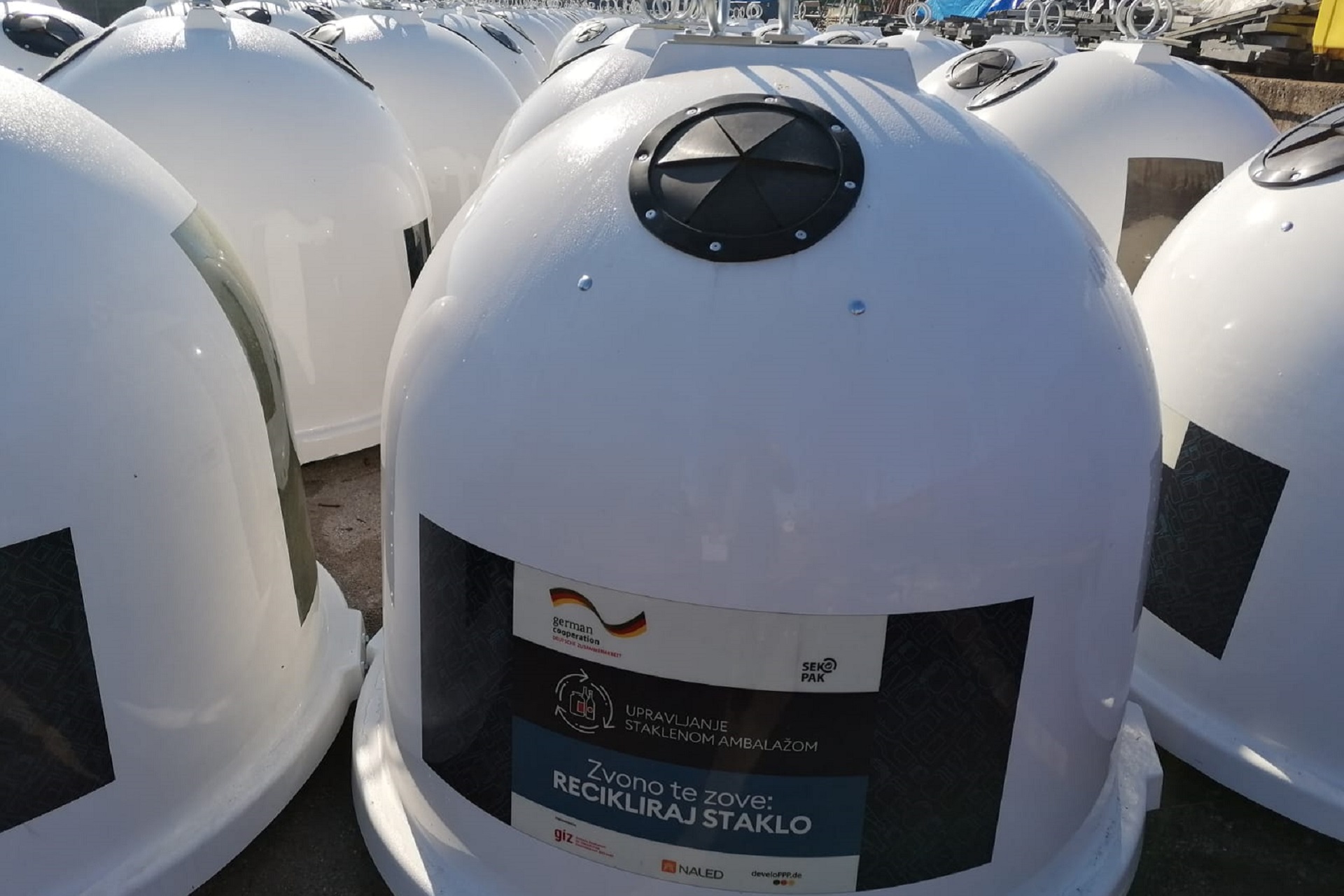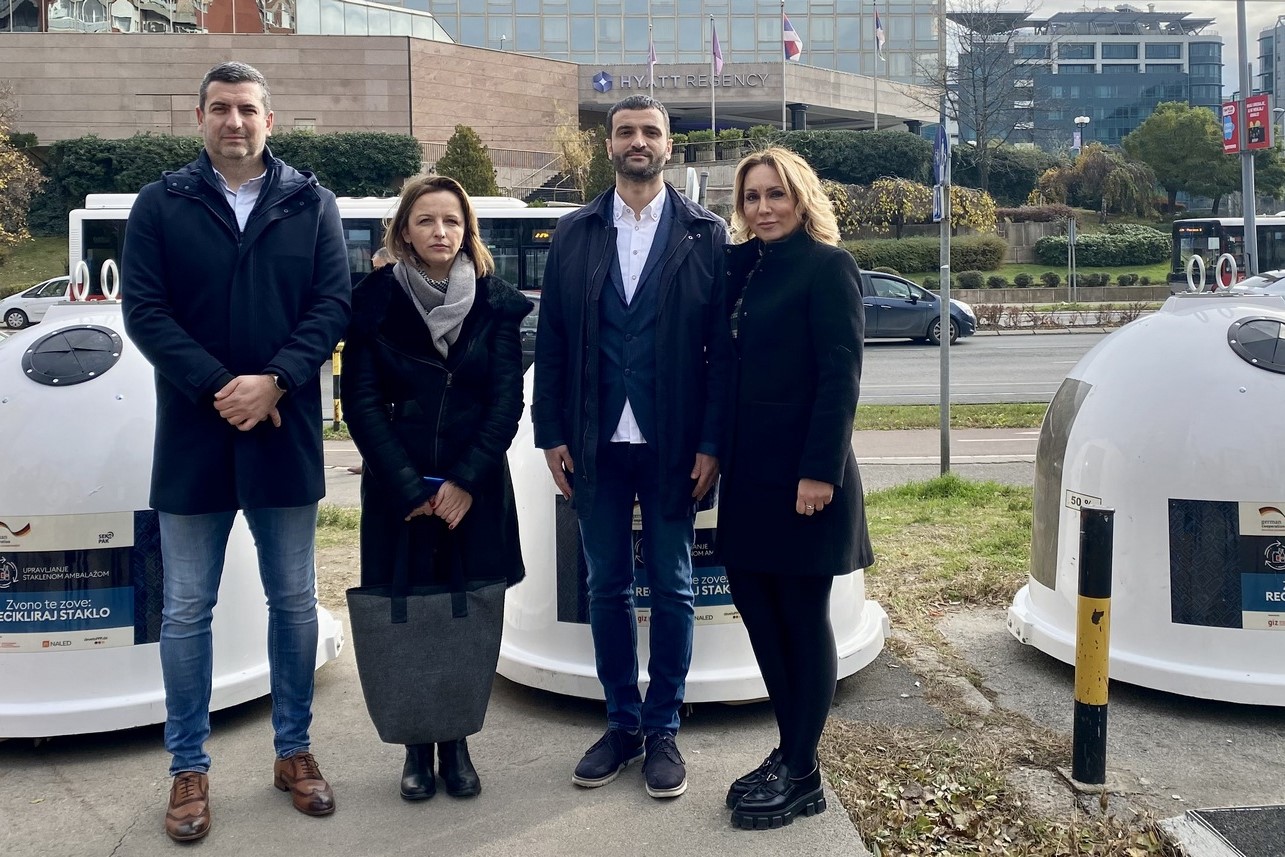Recycling bells increased collection rate of glass packaging by 90%
When there are special containers in their neighborhood, citizens are more than ready to separate household waste. Thus, the installation of 1,400 recycling bells increased the collection of glass waste by as much as 90% in 14 pilot cities and municipalities in Serbia, BiH and North Macedonia, which participated in the project "Glass Packaging Management in the Western Balkans."
The fact that infrastructure stands as a crucial step was also shown by a survey with nearly 60% of citizens in three countries confirming that they do not separate waste because they do not have the conditions to do so, while only a fifth points out that they do not have the habit of recycling. What would further motivate them is, first of all, greater proximity to containers for collecting different types of waste, as well as the introduction of incentives for the return of packaging, as shown by the findings of research presented at the conference "The bell is calling you - recycle glass".
At the final conference of the project, it was pointed out that the financial unsustainability of establishing a glass recycling system is currently the biggest obstacle. Glass recycling factories are needed because they do not exist in any of the three countries and they export this valuable resource. Primary selection at the municipal level is still in its early phase, and disposal fees are low or non-existent, so their increase is needed to make it less profitable to send the packaging to the landfill.
- We face a big challenge because the EU has set a goal of recycling 75% of glass packaging by 2030. We are still far from fulfilling that ambitious task, because in Serbia, about 44% of the quantities placed on the market are recycled, in Macedonia, about 30%, and in Bosnia and Herzegovina, 12%. It is necessary to prescribe target quantities for recycling and penalties for non-fulfillment at the national and local level, strengthen inspection supervision over waste management and make disposal at landfills the least favorable option - said NALED Executive Director Violeta Jovanović.
The project "Glass Packaging Management in the Western Balkans" was initiated by the German development cooperation implemented by GIZ, together with operators of packaging waste - companies Sekopak, Pakomak and Ekopak. The project was implemented by NALED, the Regional Development Agency of Herzegovina (REDAH) and the Union of Local Self-Government Units (ZELS) from North Macedonia.
The Director of GIZ in Serbia, Daniela Funke, pointed out that German development cooperation, through numerous initiatives it implements with the private and civil sector, supports countries in the region to improve waste management, encourage the development of a circular economy and an economy that is climate neutral in order to reach the ambitious goals set by the EU by 2030. "This project laid the foundations for reducing the costs of recycling, processing and reusing glass waste in the region," Funke concluded.
Apatinska Brewery supported the project and the procurement of containers with 150,000 EUR, and General Manager Igor Vukašinovć thanked all partners and said that cooperation among the public, private and civil sectors is key to solving today's key challenges when it comes to environment protection.
Recycling bells were received by Skopje (city municipalities of Aerodrom and Gazi Baba), Ilinden, Bitola, Tetovo, Đevđelija and Štip, Novi Travnik, Konjic, Ilidža and Bihać, as well as Sombor, Niš, Kragujevac and Varvarin. During a period of one year since the installation of the bell, nearly 1,300 tons of glass were collected in these cities and municipalities. Thanks to the project, recycling bells arrived in Novi Sad and Belgrade this year as well.
- Sombor and Niš are the first cities in Serbia to receive 450 recycling bells, and Kragujevac and Varvarin soon joined the project, where 120 and 30 containers were placed, respectively. In those places, 590 tons of glass packaging were collected, which contributed to 60% less glass ending up in landfills than before the start of the project. Another 50 bells were set up in Novi Sad, along with 120 in Belgrade - announced the Director of Sekopak, Violeta Belanović Kokir.

